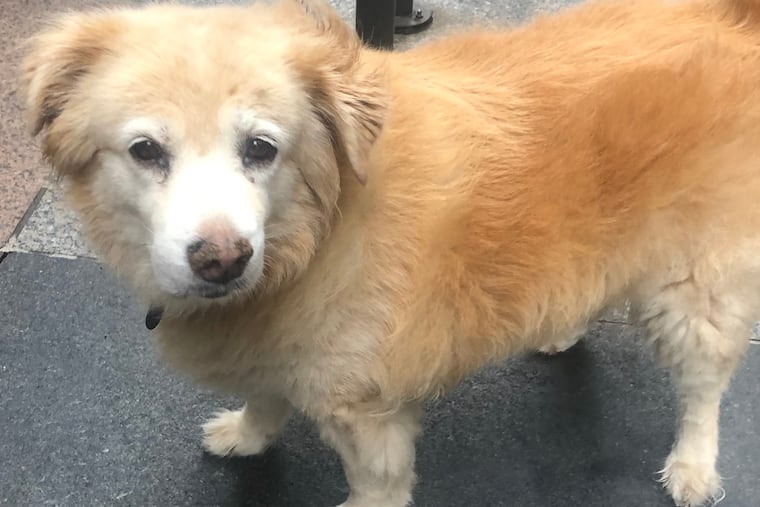I’m a Black woman who was accused of trying to steal my own dog. What followed was a lesson in bias and assumptions. | Opinion
The cultural shades that we wear to view the world operate like transition lenses. It's essential we realize that when triggered, they can widen blind spots, writes Linda S. Wallace.

A few weeks ago, I went into a Center City shop to buy a cup of coffee. My mixed chow, Gabby, sat outside, waiting patiently for me.
As I exited, I decided to take a photo of Gabby, who was old and at the end stage of life.
As I pulled out my iPhone camera, a young white woman rushed over to me and instructed me to leave the dog alone. “She’s not your dog,” the stranger said. “I’ve been watching her.”
Now is a good time to mention that I am African American. “She is my dog,” I responded wearily. I wasn’t going to argue with her.
At that point, a middle-aged white man walked over with a warm, reassuring smile. He gestured at Gabby and said, “I could tell from her eyes that the two of you belong together.” The white woman walked away.
Whenever a bystander accuses an African American of a crime, it is tempting to scream racism. I’ll admit that was my first thought.
» READ MORE: A nurse reflects on implicit bias while caring for a patient with sickle cell disease | Expert Opinion
But if we want to live life in pursuit of truth, we need to consider a full range of possibilities. Later, I wondered if someone had stolen this woman’s dog, prompting her to act like my dog’s protector? Had my decision to take a photo of my dog struck her as odd? Or was she simply racially biased?
Every day we make assumptions that hold us back or open our world to new possibilities.
Our daily lives are guided by instantaneous decisions that are rooted, not in truth or scientific analysis of the facts, but rather our subconscious beliefs.
Michael W. Morris, a cultural psychologist who teaches at Columbia Business School, illustrates this point through an experiment in which he asked Asian and American corporate executives to examine a photo of a person standing in front of a group.
Many of the Asian business executives concluded the person on the outside was an outcast, which Morris says reflects a series of cultural beliefs rooted in a collectivist mindset, in which members believe that a community’s shared knowledge and supportive practices foster individual achievement.
But when American executives were shown the same photo, many of them concluded the person standing away from the group was the leader.
That, Morris says, is a reflection of much of American culture, which celebrates people who manage to pull themselves up by their bootstraps. There is a strong belief that individuals succeed if they are winners who have learned to work hard, stay focused, and get ahead.
» READ MORE: A pediatrician who serves children of color discovered his implicit bias. Here’s what he’s doing about it.
So if we go back and revisit the photo, can we honestly say which cultural belief is correct? We need to gather facts before we can honestly tell what is going on.
The cultural lenses or cultural shades that we wear to view the world operate like transition lenses. When triggered, they can darken automatically and widen blind spots.
This explains why it is easy to get into trouble when we use our cultural lenses to judge the actions or words of others, or people from a different race — unless we collect additional facts.
Since my encounter outside the coffee shop, I haven’t been able to stop thinking about the man who cared enough to come to my rescue and make certain I was OK. My dear Gabby is gone now, but I still have the photo, and I cling to the memory of the passerby who witnessed our love.
He didn’t pull out his camera and take a video of the unfolding drama. He stepped in to de-escalate the situation and care for the wounded. That’s what allies do.
Until we achieve a greater degree of cultural competency, cultural collisions will occur. Diversity training isn’t really the primary fix.
Philadelphia needs far more allies who are ready and willing to get involved, de-escalate tensions, and tend to the wounded when cultural collisions occur.
Unless we are willing to do this, we will remain a city filled with brokenhearted victims.
Linda S. Wallace is a communications specialist and cultural competency consultant. culturaliq@gmail.com